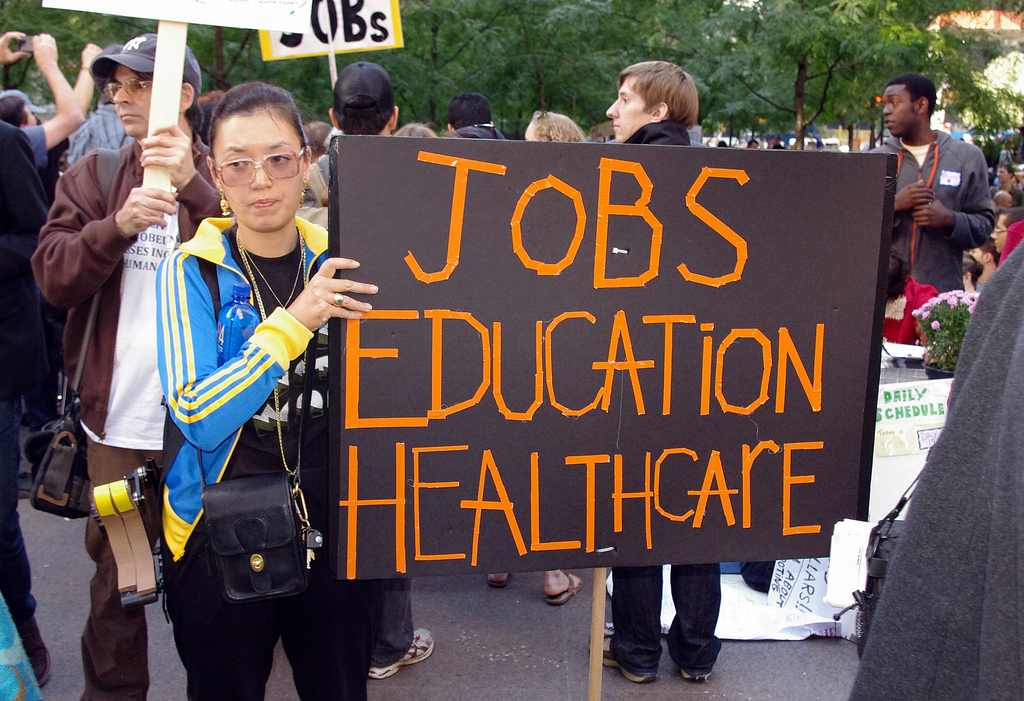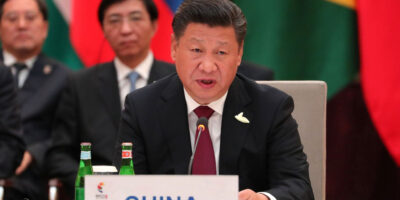Over Half of Millennials Identify as Socialist. Here’s How to Change Their Minds.
As generations come of age, the political landscape often shifts. Two recent surveys’ reporting that more than half of millennials identify as socialist should therefore ring alarm bells for people who support free markets and individual liberty. Over 50 percent is a rather shocking statistic, but don’t despair. If the case is made in the right way, many of these self-identified socialists are ripe to support limited government, perhaps even more than older generations. So how does one make the case for capitalism to young Americans? I humbly offer my four-point plan below.
#1 Don’t Panic
As many commentators have pointed out, most millennials came of age after the Cold War and don’t really know what socialism is. Many simply have a vague notion of wanting to help people, or have left-wing views akin to politicians such as Bernie Sanders and Elizabeth Warren. Most millennials aren’t agitating for revolution, nor do they support government’s owning the means of production. So the issue isn’t really socialism as properly defined, but more that a large number of young Americans support big government programs and interventions in the economy. This still isn’t good news for those supporting free markets and liberty, but it isn’t impending doom.
#2 Don’t Argue on Moral or Philosophical Grounds
Americans on the left and right often assume the other group is ill-intentioned or misinformed. Part of the reason we keep repeating the same arguments in American politics is that nobody likes being told that the way they look at the world is wrong. Though I agree with commentators Shawn Langlois and Benjamin Powell that it’s very dangerous to forget the utter devastation wrought by communism and socialism in the 20th century, I don’t believe lecturing millennials on this point is effective. Socialism as they understand it, however flawed the definition, is too far removed from those ghastly regimes.
Millennials are much more likely to embrace free market capitalism if one accepts and respects that they simply want to help people who are suffering. Put aside debates about individualism versus collectivism and instead show them that in practical terms, less government and freer markets are the ways to best accomplish their goal.
#3 Focus on Bottom-Up Thinking
Here’s where the real action is. More than any past generation, millennials are primed to view the world as bottom-up networks of individuals and communities rather than top-down groups of leaders and followers. Millennials who think they don’t like capitalism are already some of its most active participants, especially in technology and entrepreneurship. The term “decentralized” has also increasingly come into vogue as people get interested in Bitcoin and blockchain technology.
The problem is that politics and economics as many younger people understand them haven’t caught up to this bottom-up, decentralized worldview. The economy is a complex network of individual actors and ever-changing technology. No matter how good one’s intentions are, you can’t control or regulate it from the top down. You can’t take money from one group, give it to another, and not expect unintended consequences. You can’t perfectly enforce well-meaning regulations, no matter how draconian you get (drug prohibition is a good example here).
More millennials are likely to embrace free markets when they see them as Hayek did, as the only effective way to take all the billions of bits of information about what people have and want and allocate resources accordingly. Progressives often assume that a central government is the only entity that can alleviate suffering in society. Entrepreneurial, tech-savvy millennials should be coming up with innovative ways to address social problems rather than advocating centralized policies that don’t work. Writer Jeffrey Tucker, in a recent interview about combating right-wing collectivism, has a beautiful quote that applies just as well to the left:
I think politics is doomed, it is so disgusting – like, why do we keep doing this? Why can’t our politics basically be liberal? I don’t know, but I think the future of liberalism is outside of politics. It’s within technology, it’s within education, it’s within culture, and more and more people who believe in human dignity and human rights and human freedom and human flourishing need to pursue other avenues for realizing their dreams besides an exclusive focus on political organizing and that sort of thing.
I think plenty of millennials, no matter how they define their beliefs, are ready for that message.
#4 Rethink Old Alliances
There’s one more reason why some millennials have a knee-jerk reaction against capitalism. It’s not capitalism itself but what’s been packaged with it in our two-party system. In millennials’ lifetimes, the most visible standard-bearer for lower taxes, freer markets, and less regulation has been the Republican party. Tucker, in the same interview, notes his own tension in liking many of the Trump administration’s economic policies while hating other aspects of it:
If a fascist regime cuts taxes and deregulates industry, we should say: “That’s good.” But if that same regime keeps out immigrants, sets up trade barriers, centralizes executive power, and unleashes the cops on drug users, we should say: “This is evil and it must be stopped.”
What Tucker doesn’t say is that this is the latest and most extreme version of the strange, decades-long Republican coalition of economic libertarians and social authoritarians. Not all, but many of the same candidates millennials have heard espousing the virtues of capitalism have also had socially conservative views. And millennials are even further to the left of older generations on social issues such as gay marriage, abortion, and drug policy. Many younger Americans consider these issues deal-breakers, and they won’t support socially conservative candidates no matter the latter’s economic principles. The current Republican coalition may make political sense now, but it may have to change if enough millennials are to become reliable free market voters.
Conclusion
This all may seem like a tall order, but it does not require those who believe in free markets and liberty to sacrifice any economic views. It only requires changes in how one talks about those views and approaches people with different values. Millennials who currently identify as socialist may end up greatly advancing the cause of economic liberty.
—











